Student Blog
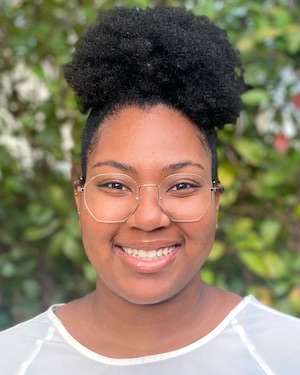
I’m So Happy That I DIDN’T Get It ⟩
November 4, 2021, by Kayla
Let’s start off by setting the scene. It’s 2019, I’m in my first semester of the Master’s program and I just got my very first Level I fieldwork placement. I was so excited to be placed at Keck Hospital of USC and even more excited to experience the acute care practice setting. It was absolutely everything I could have hoped for and more, I learned so much from my clinical instructor and had amazing interactions with my patients and before fieldwork came to an end I had made up my mind. I needed to be a Keck OT resident.
Jumping forward to September of 2020, the time had come to apply and interview for the USC Chan Residencies. I was so excited to start taking steps towards something that I wanted for SO long. I did my best to prepare; I edited my personal statement for hours on end, I prepared answers to every possible interview question I could think of, and being selected for that residency was all I could think of. October comes, applications are due and I participate in residency interviews. November comes and residency offer letters are sent out . . . but mine never came.
I take pride in being honest and transparent so I would be completely lying if I say that I wasn’t devastated and felt like everything I had worked for up to that point had been a waste. I would also be lying if I said that it was an easy task to pick myself back up and figure out what was next for me. This was the first time in my academic career that I had to deal with not achieving a goal that I set for myself and it was a hard reality to accept. After a period of allowing myself to feel my emotions authentically and grieving what could have been, I accepted that this was not the end of my journey and that there was a path for me. I just had to go out and find it!
This experience gave me the opportunity to take a step back and be honest with myself and make a conscious effort to work on areas that needed some extra TLC. Although this insight came at the cost of not being selected for the Keck residency, I was on the path to being better equipped for future experiences. I learned how to communicate more efficiently, I learned to have more confidence when interviewing for positions, and most importantly, I learned how to advocate for myself and ask for what I wanted! On top of the opportunities to develop these invaluable professional skills, I had some amazing experiences that would never have happened if things had played out differently. I was able to complete an out-of-area Level II fieldwork over the summer, I have the opportunity to design and tailor my residency experiences to my specific interests, and I have the opportunity to define myself and begin my career in an entirely new city!
So rather than choosing to see this experience as a rejection, I have chosen to reframe it to see it as a redirection; one that I am so thankful for! I am a VERY firm believer that everything happens for a reason and that the things we go through are set in our path to help us become better versions of ourselves. I fell right into where I needed to be and I promise, you will too.
With all of this said, as residency offers begin to roll out and whether or not you receive the outcome you are hoping for I want to remind you to give yourself some grace, give yourself some extra love, and to reassure you that you are more than enough.
⋯
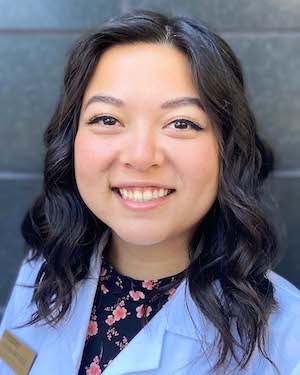
A Love Letter to the OS Minor ⟩
October 27, 2021, by Alyssa
With USC course registration coming up, let’s chat about the occupational science (OS) minor and why it’s the best dang minor ever (Let’s be real — it’s part of my job to promote our programs . . . but I promise this is my honest opinion and I’d say all of this for free).
Undergrad was a very stressful time for me. My major courses involved many overlapping creatively-demanding projects, and I spent plenty of late nights glued to my computer to keep up with it all. For me, and for many others, the OS minor was a refuge. Beyond their obvious application to OT school and life in general, I thought they were all really fun and often were a stress-free few hours of my week. AND I actually remember what I learned in them. Here’s what I took & my favorite project from each class:
OT 250 (4 units): Introduction to Occupational Science and Occupational Therapy
- What is it? The only class required for the minor. It was like a sampler of everything OT has to offer — we learned about healthy habits and routines, flow, motivational interviewing, lifestyle redesign, OS research, neuroscience, stress management, sleep hygiene, creativity, exercise, sensory systems, and (still somehow) more!
- My favorite project: We wrote a paper to reflect on occupations that bring us into a flow state — I wrote mine about Zumba. 💃
OT 251 (4 units): Across the Lifespan: Occupations, Health and Disability*
- What is it? The OT department’s lifespan development class. This class was great preparation for the Team-Based Learning format used in several of the OT graduate classes. *(Bonus: it covers a prerequisite for the graduate program so it’s like a 2-for-1 deal.)
- My favorite project: Individually, our final assignment was to read a memoir by a person with a disability and relate it to the course — I applied the person-environment-occupation model to Tara Westover’s Educated and it was the first time I got to practice this kind of analysis.
OT 330 (4 units): Perspectives on the Daily Life of Families
- What is it? A class dedicated to the roles within and occupational impact of family life.
- My favorite project: A family tree diagram to identify occupational connections within our families. We could make it as extensive as we wanted, and I had a blast. My final tree was 23 pages wide 😮
OT 350 (4 units): Disability, Occupation, and the Health Care System
- What is it? Amazing guest speakers and meaningful discussions surrounding the varied experiences of living with a disability and navigating the health care system.
- My favorite project: We had weekly journals to reflect on our developing understanding of disability — my favorite journal activity was an accessibility scavenger hunt around USC’s main campus.
OT 370 (4 units): Understanding Autism: Participation Across the Lifespan
- What is it? This class was so different from psychology classes I had taken that included content about ASD. We focused on neurodiversity, lived experiences, and advocacy.
- My favorite project: My ‘media representation of ASD’ group project. I got to illustrate a children’s book and explore ways to help typically developing children understand their peers with ASD.
If I could have fit more in my schedule, I would have. Specifically, the human-animal interaction class. A few weeks ago, my friend’s dog was a guest speaker in that class — he was excellent.
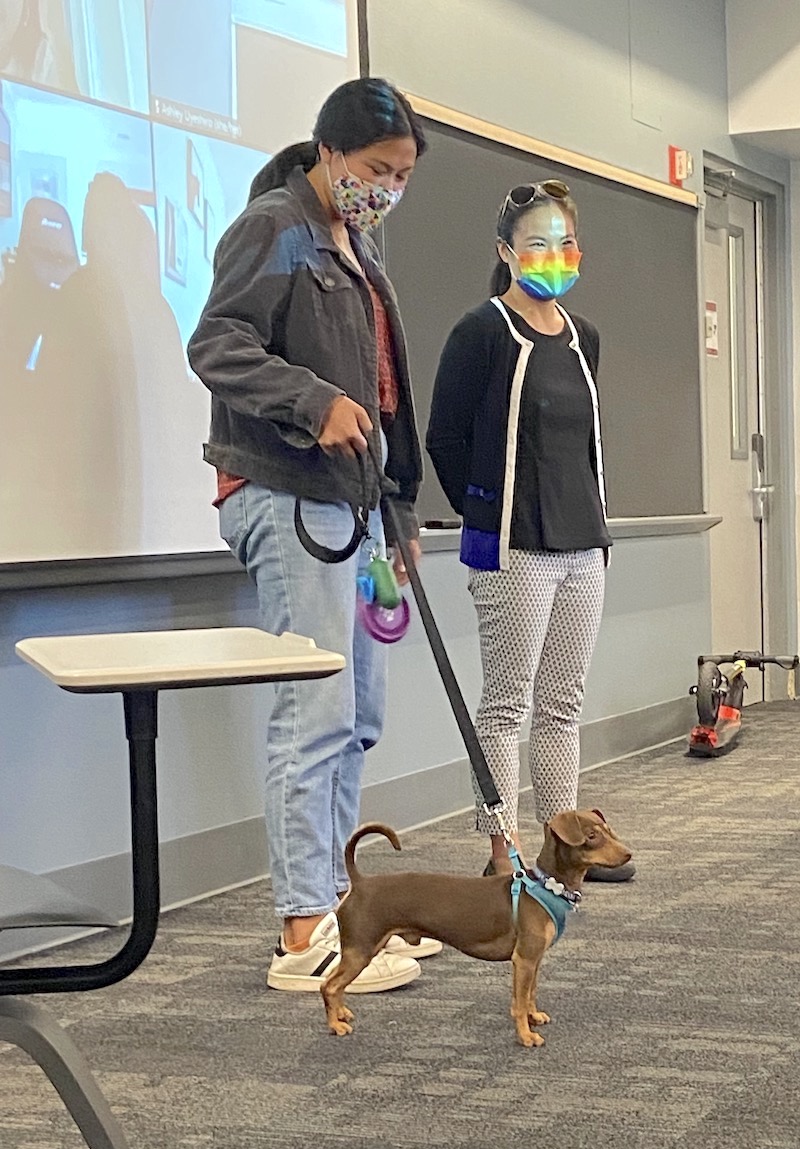
Dr. Ashley Uyeshiro Simon and guest speakers Samantha Kosai (human) and Oliver Kosai (small dog). The start of Ollie’s long career in academia, I’m sure.
As a student ambassador, I recently got to go back and give brief presentations to some of this semester’s OS minor courses, and it made me really nostalgic. When I feel nostalgic, I get emotional. When I get emotional, I write letters and never send them (usually because they are addressed to real people. Since this one is addressed to a non-sentient academic program, I’m ok with publishing it on the internet. So, here we go).
To my beloved OS minor,
I wish we could have spent more time together. I miss a lot about being an undergrad at USC, and your classes are no exception.
Thank you for classes that brightened my afternoons when I’d usually be needing a nap. Thank you for faculty mentors who have supported me through ups and downs both academically and personally (shout-outs to Linsey, Kate, & Kristy). Thank you for literally assigning some of my closest friends, Leah and Dakotah, to me as part of my group for OT 251 — they’ve stuck with me all the way til the MA-II program, and now they’re stuck with me for life.
Thank you for guiding me into the best career in the world.
✌️
Alyssa
⋯
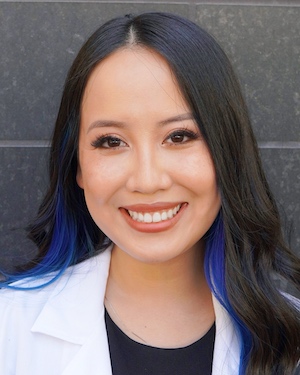
The Giving T(e)ree(sa) ⟩
October 25, 2021, by Teresa
Classes Life Hacks What are OS/OT?
Heyyy, besties! So the moment we enter Q4 on October 1, I start thinking about giving season because not to brag, buuut . . . I take a lot of pride in that (I believe) I give fantastic gifts. Whether big or small, I always try to make sure my gifts show people I was really listening to them when they shared with me that they’ve been wanting “X” or are really into “Y.” My top love languages are “quality time” and “physical touch” so you can imagine how much ya’ girl struggled throughout the pandemic, I’m not going to lie. But “gifts” became a welcome . . . well, gift.
In OT 405: “Foundations of Occupation” last summer with Dr. Halle, we learned that occupational therapy is rooted in the Arts and Crafts Movement but that our OT-founding queen pointed out that “handiwork alone was insufficient” (Slagle, 1930, p. 271). Then in the 1961 Eleanor Clarke Slagle Lecture, Dr. Mary Reilly shared the famous quote, “[Wo]Man through the use of [her] hands as they are energized by mind and will, can influence the state of [her] own health” (Reilly, 1963, p. 2). I know, I know — what is this, another lecture? But these things really stuck with me because it gave a definition to the calmness and serenity I had felt my entire life when crafting.
Over the past year, one of my favorite occupations has quickly become making things with my Cricut and I just feel the need to clear the air because whenever I say this, people are like “. . . 🦗???” Okay, NO — it’s a machine that can make intricate cuts on paper, cardstock, vinyl, etc., and allows you to make your own personalized crafts.
It just so happens that in OT 405 last summer, I was placed in the same group with Alyssa Matlosz, who’d become my fellow student ambassador and more importantly, one of my closest friends in the program. She was the first facilitator for our group and in relation to her week’s topic of Progressive Era Influences on the founding of occupational therapy, she ended with “I’m just like my country — I’m young, scrappy, and hungry — and I’m not throwin’ away my shot” and I thought . . . Did we just become best friends?
So it only made sense that on her birthday this year, after a year’s worth of iconic Zoom moments . . .
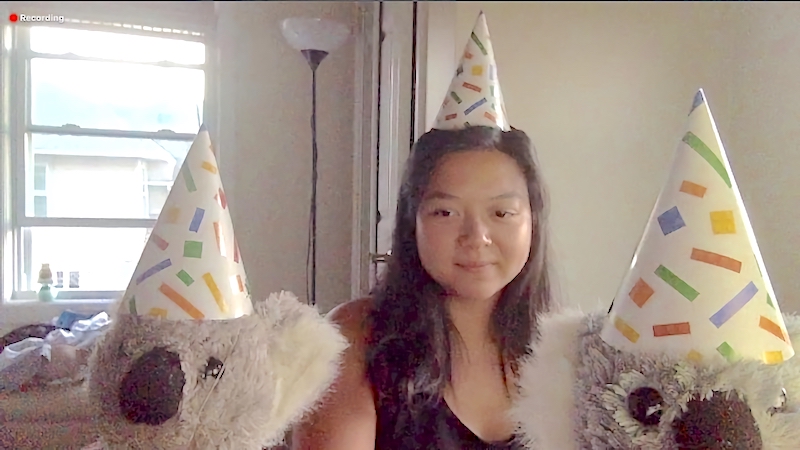
I truly do not even know how to begin to explain this, so please take it for what it is
. . . That I’d circle back to OT 405 and our shared love of “Hamilton: An American Musical” — a nod to the foundations of our friendship.
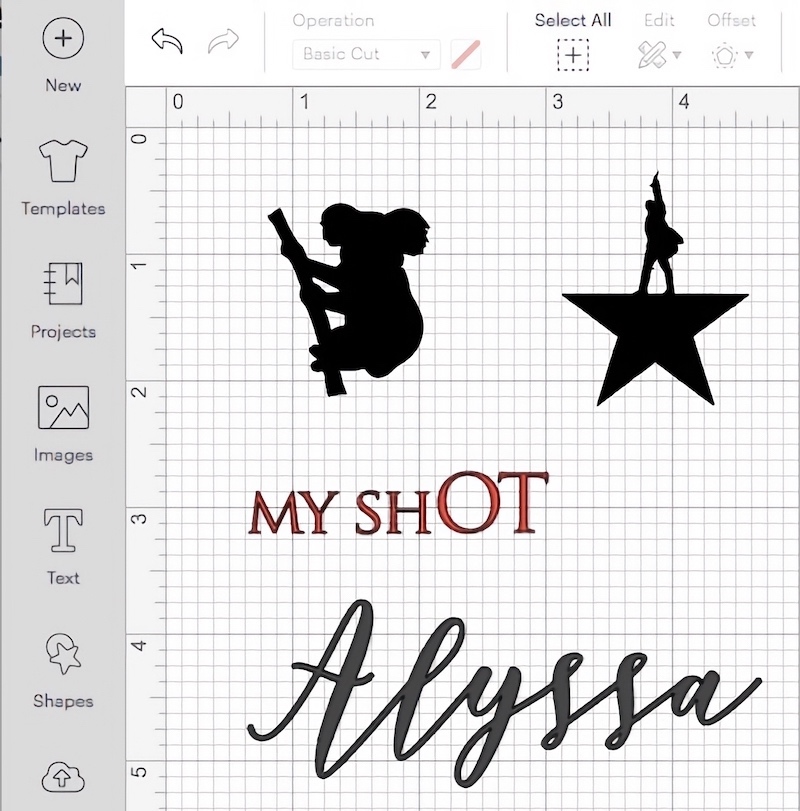
The designs I created on the Cricut Design Space app
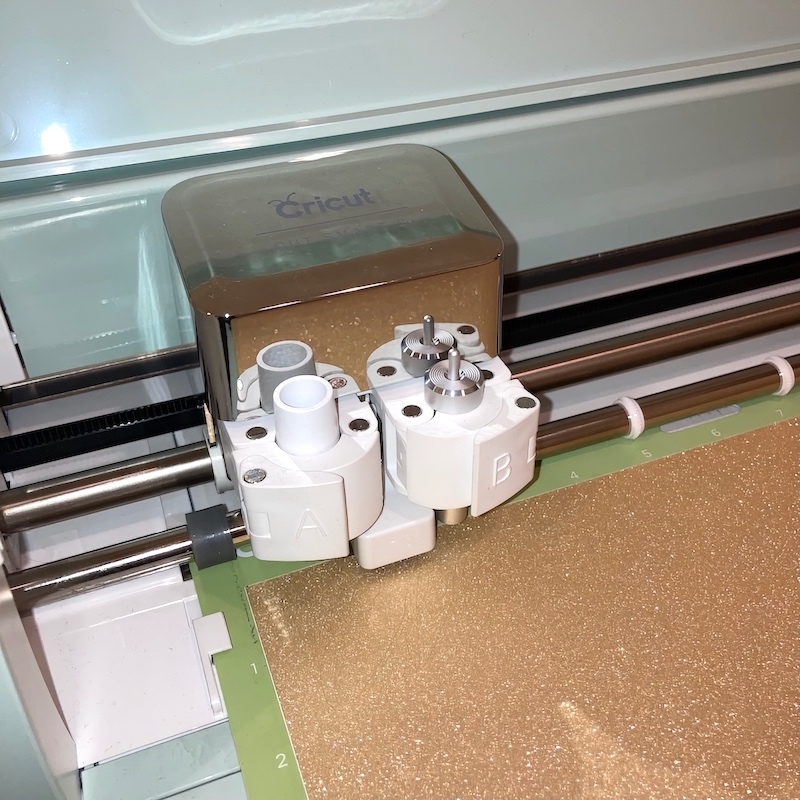
I selected the vinyl material I wanted to use, I arranged it to the cutting mat, I arranged it into the Cricut. (I arranged the menu, the venue, the seating!)
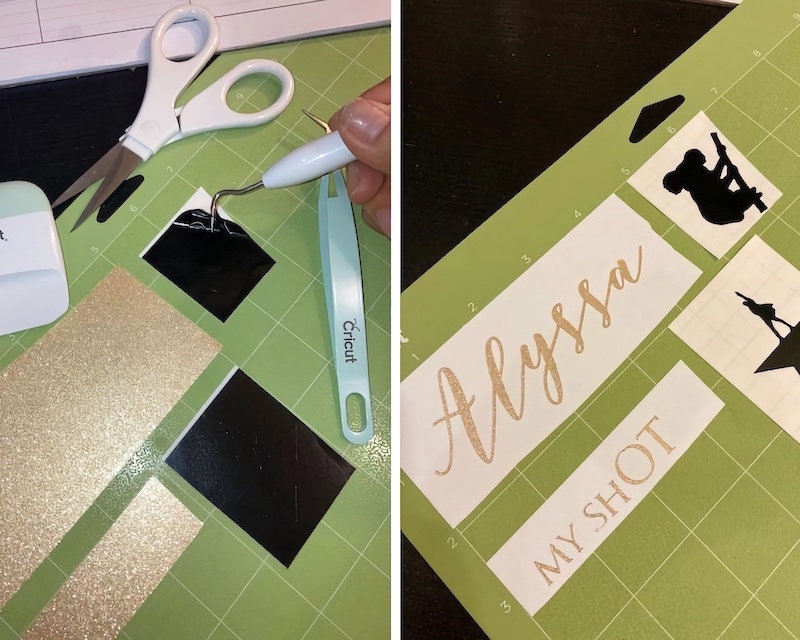
Left: This process is called “weeding,” where you extract the cut by removing the excess vinyl. Right: The finished vinyl cuts ready to be transferred onto the surface I choose using transfer tape!
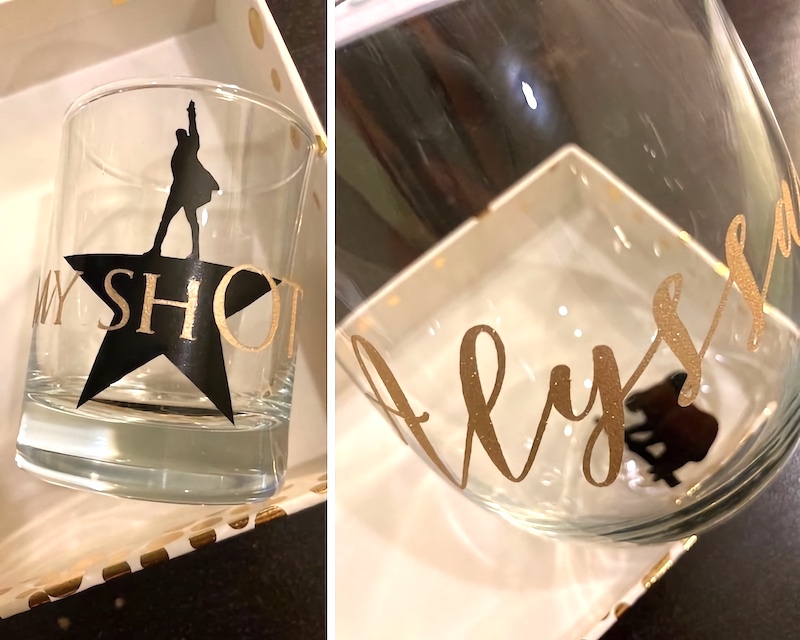
Left: Honestly, I’m pretty proud of this. Please, no one ever throw away their (sh)OT. Right: Lights are overrated, there should be a koala at the end of every tunnel.
I made these gifts during a week that, truthfully, I did not have time for. In between assignments, exams, deadlines, and applications, I was feeling overwhelmed and to be completely honest, I couldn’t remember the last time I had done something unrelated to school. So instead, I took a break and powered up the old ‘Cut. Something I really enjoy about the therapeutic process of crafting is that not too long ago, you just had a concept you were brainstorming in your head and now it’s a tangible, real thing you brought to life. I’m not just talking about physical items you create with your hands, either. You can “craft” anything — an essay you wrote last week that you’re really proud of, a flyer you made online to promote an event, a photo you captured to add to your carefully curated Instagram post, a blog you’re writing about what everyone initially thought was your love for insects. You took an abstract idea and introduced it into the world and if your mind can do that, think of all the things you’re going to do in the future. What a wonderful gift for this world to look forward to — the promise and hope of the products of your creativity and ingenuity that are yet to come.
There is also something beautiful to be said about an item you make with your hands. I spent hours on this gift, but each moment was such a mindful experience. How could you not say crafting falls under OT? From the fine motor skills it takes to handle tools and delicate material, to the executive functioning required to sequence tasks, to the visuoperceptive skills needed to locate and work with everything, to the social connectedness you feel in making the activity personalized . . . the list goes on and on. And then being able to give the end product to another person and in doing so, indirectly saying, “I made this for you because I care about you. But in making it, I was able to sit down and take time away from my stress, so even though I care about you . . . I care about me, too.”
Is there any gift greater than that?
I have the honor to be . . .
Your obedient servant,
T dot Pham
References
Reilly, M. (1963). The Eleanor Clarke Slagle: Occupational Therapy Can Be One of the Great Ideas of 20th Century Medicine. Canadian Journal of Occupational Therapy, 30(1), 5–19. https://doi.org/10.1177/000841746303000102
Slagle, E. C. (1930). Address to graduates. Occupational Therapy and Rehabilitation, 9, 271–276.
⋯
A Turning Point of My Life: From PKUHSC to USC ⟩
October 22, 2021, by Global Initiatives Team
Classes Fieldwork International What are OS/OT?
By Chen Gong, OTD
Editors Michelle Plevack and Abraham Ramirez
Entry-Level Professional Master’s students
What made you interested in occupational therapy?
My story with occupational therapy began in 2018 when I was an intern therapist in the Department of Rehabilitation Medicine at The Sixth Affiliated Hospital of Sun Yat-sen University in Guangzhou. As a beginner in OT, I attached importance to function-oriented treatment. However, my instructor encouraged me that I should pay more attention to the patient’s real life. Once, on a whim, I used a guitar to engage a patient with dementia in a music activity. The patient was relieved from the tiredness and boredom of previous therapy sessions. I could see tears in her eyes that this activity was meaningful to her. This incident has completely changed my opinion about OT, and let me really understand the meaning of occupation. Later, because of my love for OT, I came to the dual-degree OT program between Peking University Health Science Center (PKUHSC) and USC to continue my studies as an OTD student.
Why did you choose to continue your education with the OTD?
During my two years at PKUHSC, I gained a more systematic understanding of OT theoretical knowledge and gradually found the current situation of OT promotion in China. In many general hospitals, OTs have not found their own optimal practice area. OTs are unable to establish their professional identity and carry out meaningful acts of therapy. I deeply feel the inadequacy of my own ability. I look forward to further improving my professional level and leadership, exploring the OT market, and leading the development of OT in China in the future. I believe that studying at USC Chan will help me to achieve my goals.
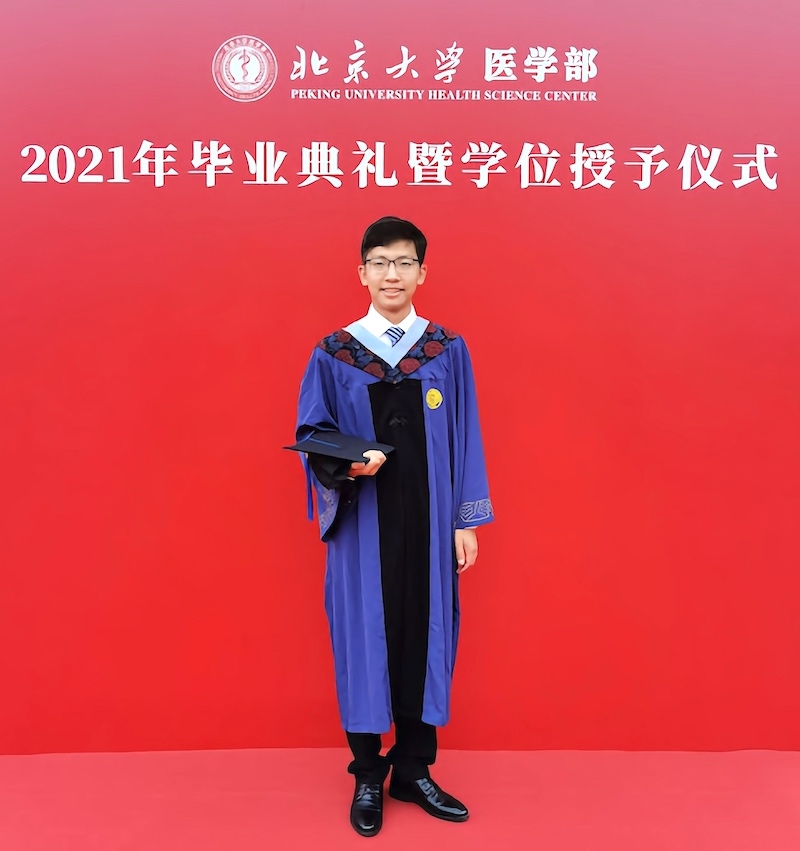
Master’s degree ceremony: Peking University, Beijing, China, Summer 2021
How has the transition from MSc in PKUHSC to OTD been?
China and the United States have very different cultural backgrounds. This ranges from the perspective of OT education, the way of communication between people, the atmosphere of class and work, and the pace of life here are all different from before. It has basically been like learning how to grow up and live again. Fortunately, I quickly adapted to the lifestyle and study context here. For the first semester, I am working with Dr. Emily Sopkin and Dr. Shawn Roll separately for pedagogy and research. Now I can actively act as a mentee.
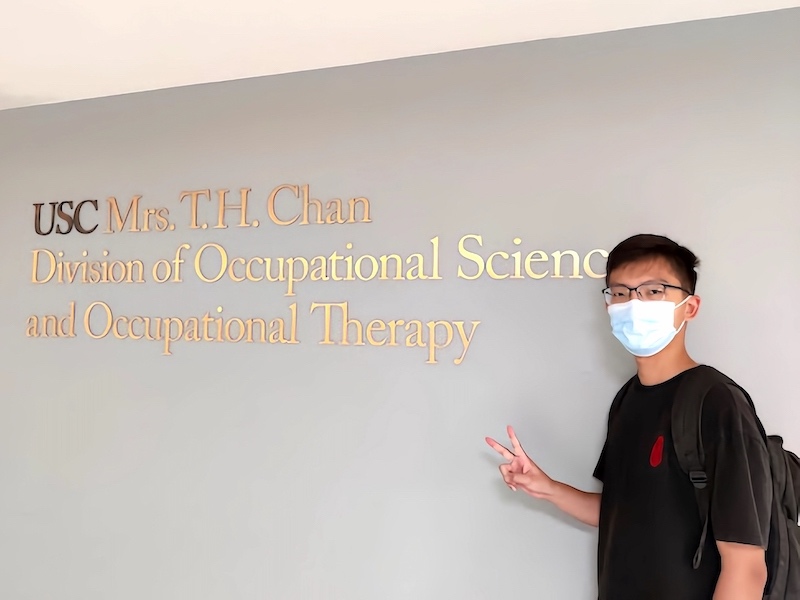
Chen’s First photo with USC Chan Division, Fall 2021
Describe your experience of OT school at PKUHSC vs USC.
Studying OT in PKUHSC for two years was really a very good experience. We completed the Master’s courses required by USC, and the way of teaching at PKUHSC was similar to USC Chan’s classes. In addition to the courses, we all completed a certain research project and published a paper in Chinese core journals. Through this, I have special appreciation for my mentor, Professor Ninghua Wang and her support for my research work. I also really appreciate my instructors Dr. Jane Liu, Dr. Liguo Qian, Dr. Hui Wang, Dr. Lily Xu and Dr. Buwen Yao, who were all students of USC Chan, and their efforts to localize these OT courses. Studying OT at USC is exciting. I can feel leadership everywhere. This immersion allowed me to think about how to develop my leadership. The Chan Division has its own unique experience in pedagogy, research, and clinical practice. I am sure I can learn something different from what I learned in PKUHSC, especially in clinical practice.
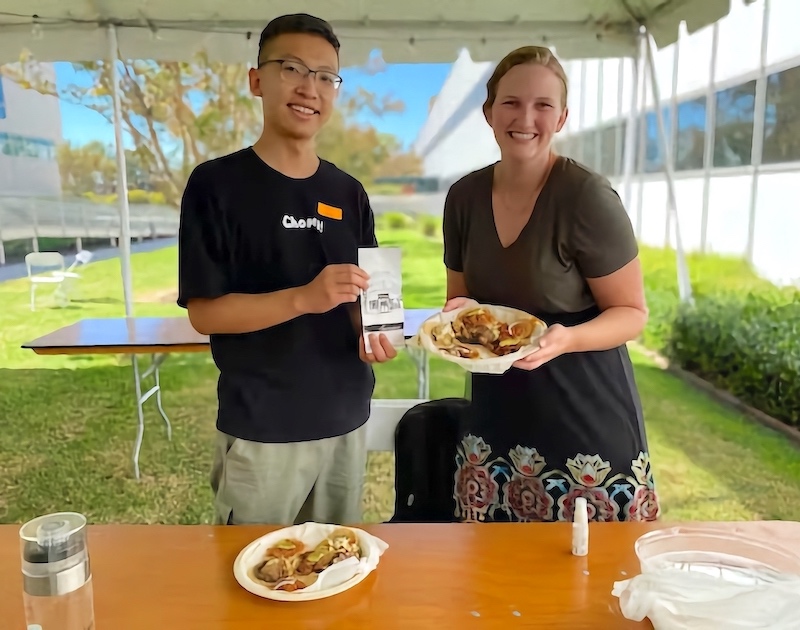
Unforgettable lunch with Dr. Emily Sopkin, Fall 2021
What do you think about your OTD residency so far?
It’s great! My residency for the first semester is mainly about pedagogy and research.
For my pedagogy residency I am a teaching assistant for OT 440: Kinesiology, which was also my favorite class when I was a Master’s student at PKUHSC. I enjoy this job. I developed a good mentoring relationship with Dr. Sopkin. I try to be creative by sharing knowledge related to the course with my students to help them learn from different perspectives.
For research, I’m working in the Musculoskeletal Sonography and Occupational Performance (MSOP) laboratory. Now I am gradually getting involved in existing research in the lab, which makes me feel fulfilled. As Dr. Roll said, “I don’t think it’s that important for you to learn a particular skill. It’s more important to immerse yourself in the research environment and see how research works.” I couldn’t agree more.
What kind of OT do you want to be in the future? Your plans/goals after OTD graduation? Or how will you promote OT services in China?
Actually, I want to be an active OT, who is purposeful, has great leadership skills and knows how to promote OT effectively. I also hope that I will be good at several clinical skills, which will help me establish my professional identity.
I plan to work in the OT department of a general hospital, mainly engaged in the occupational therapy of musculoskeletal and neurological disorders of the upper limbs and hands, and also undertake part of the teaching work, e.g. combining what I learned here with China’s clinical context and then trying to establish a practical framework of occupation-based hand therapy education. As for research, I will try to design and lead research projects and apply for national funding.
⋯
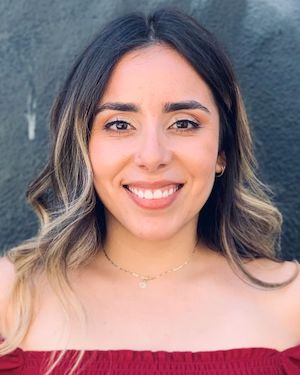
Survivin’ ~N~ Thrivin’ ⟩
October 21, 2021, by Silvia
Life Hacks School/Life Balance
Ok, full disclosure, I was not thriving last week . . . or the week before that.
Sometimes life is just hard, you know. You may have big assignments due, an application to submit, an exam (or two) to take, and work deadlines to meet — all while you’re trying to resolve family issues, your printer decides to stop working, your computer crashes, and your ex has the audacity to text you and ask how you’re doing. Two or three of these things I can handle, but all of them together felt a little excessive.
And here’s the thing about me, I do not handle being stressed or overwhelmed very well. My go-to coping strategy is to eat ice cream with under-baked cookies and watch Mulan, which is not exactly the answer I gave during my OTD interview — but that’s besides the point. What I am trying to say is that the first half of October was rough. I had so much going on that I felt like I was just doing and not being. Honestly, a lot of us felt that way (per the brief research I conducted, aka my “Surviving vs. Thriving” Instagram poll) and maybe you are feeling that way right now. If you are, I want to say this: there is more to life than this moment, let it go and let it be.
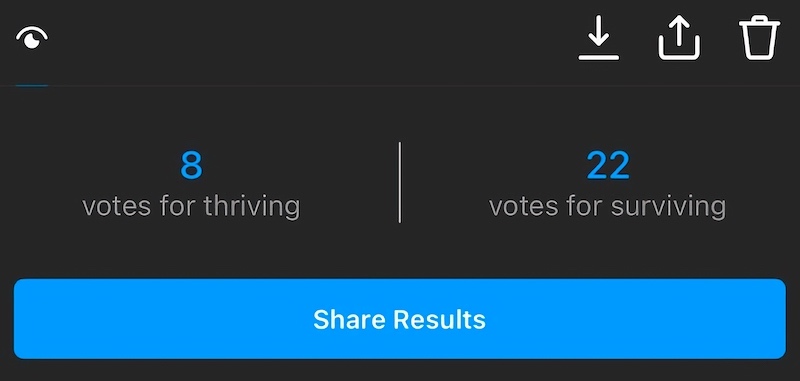
Data from my very (non) scientific research
Like many things, this is easier said than done, I know. It took me having a mini emotional and mental breakdown to finally give myself some grace. I don’t always have to have it all together, and neither do you, but I do think that we should always be kind to ourselves — and this is something I am working on. On the days where I feel defeated, I stop and tell myself that there is more to life than what I am feeling right now, I think about all the things that make me happy and give me life, and I give myself credit for how far I’ve come. I affirm myself.
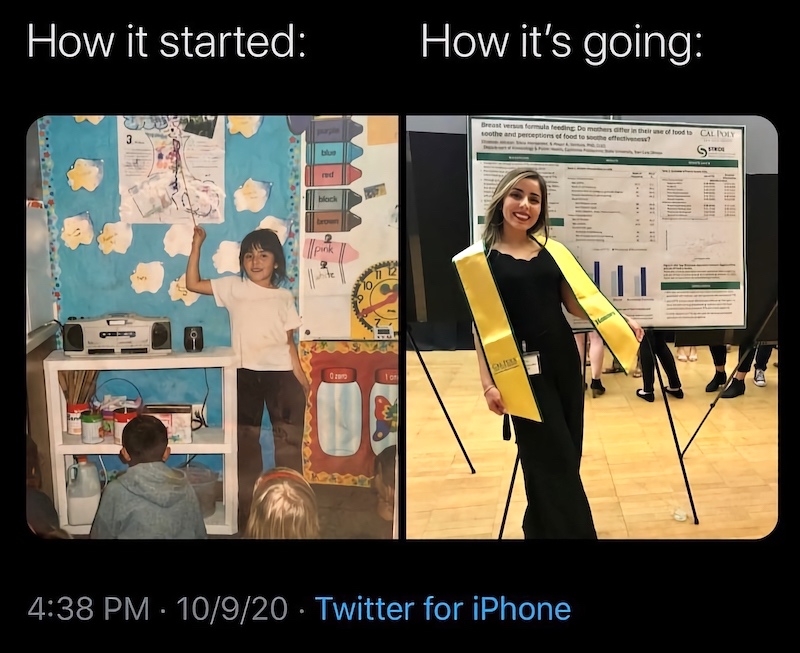
How it started vs. How it’s going . . .
When I do this, I realize that I truly am thriving. I am living in a new city, meeting beautiful people, making new friendships, halfway through the master’s program, and pursuing a doctorate (ok, this one is contingent on being accepted, but speak into existence ok).
Life is about perspectives, and how you choose to look at things may shift the way you view surviving and thriving.
⋯





